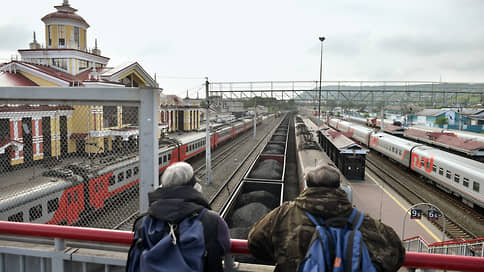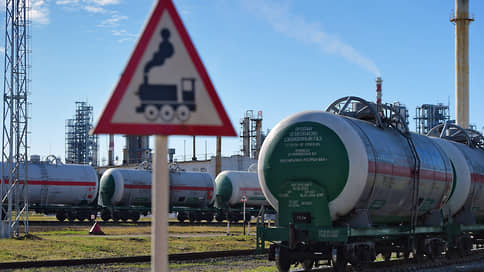Russian Railways was faced with non -edification of coal cargoes on applications

OJSC ROSI has been observing a new problem on the network: since the end of January, coal miners have stopped presenting products in the western direction under agreed applications, and the gap between the plan and the fact reached 30%, while in the first quarter of the last year it did not exceed 2%. A strong ruble exacerbated the problems of coal miners, and so suffering from low prices, experts explain.
Railways OJSC collided with the non -editing of coal cargo under agreed applications. “The first quarter and April led to the fact that up to 30% of coal products that were declared west-these are the ports of the Azov-Black Sea basin (ACH) and the October Railway (OSZh), Baltic, Barents and the White Seas,” were not presented for transportation, ”said the deputy industry director of the Russian Railways, Mikhail Glazkov. The western direction « Russian railways » lost more than 150 thousand tons in loading daily, that is, 4.5 million tons of cargo per month told us, but did not show us. «
According to Mr. Glazkov, every third car, which was on the flight, turned out to be superfluous.
Russian Railways, he pointed out, put on the flight 72 thousand empty gondola cars, which were applied to the West Siberian Railway (ZSZH) and are not in demand in transportation. “Today they are on public routes, affecting operational work,” says Mikhail Glazkov. He emphasized that we are talking about already agreed applications. Inflation of disagreed applications is not a new phenomenon: Russian Railways noted that, for example, for the incomplete 2022 year, the volume of applications filed to the east four times exceeded the volume of coal production in the Russian Federation (See “Kommersant” dated November 15, 2022).
In April, the situation remains, says Mr. Glazkov: daily on the North Caucasus Railway, the RED and the ZSZH is not presented for 1.6 thousand wagons. “We multiply by 62 and get almost 100 thousand tons daily with the ZSD, coal enterprises do not load,” he emphasized. Referring to explanations from coal companies, he explained that the low price of coal in the world markets and an unfavorable ruble exchange rate to the dollar lead to this. The drop-up volumes in the north-west, Mikhail Glazkov noted, in the first quarter was compensated, but not completely, due to the additional volumes of metals and fertilizers.
According to Morzentr Tek, coal transshipment in the Arctic basin decreased in January-February by 35.2%, in Baltic increased by 1.1%, in ACH-by 12.7%. But in March, the indicators worsened. In particular, sea export through the port of Ust-Luga, according to KPLER, in the first 20 days of March, relative to the first 20 days of February, decreased by 31%, to 1.55 million tons. In the Russian Railways OJSC, they noted an increase in the loading of export coal as a whole into ports in the first quarter by 2.6% of the year, up to 40.6 million tons.
Independent industrial expert Maxim Shaposhnikov notes that since February, a sharp strengthening of the ruble has increased to low coal prices, which immediately brought coal into a negative profitability zone. “In this regard, the failure to provide goods according to the plans agreed back in January,” he notes.
Argus in the March review noted that strengthening the ruble to the US dollar negatively affects exporters of all industries: on average, from March 1 to 25, the dollar rate was 86.51 rubles. Compared to 92.74 rubles. In February and 100.41 rubles. In January. Mr. Shaposhnikov believes that such a situation, presumably, will last until the end of the year. And the revision of the freightshit plans for coal miners threatens the fact that during the year they will not coordinate anything at all, the expert notes. In the coal mining companies, Kommersant did not answer.
In the Union of Railway Transport Operators (SZHT; combines the transport assets of coal mining companies) notes that the non -editing of the declared cargo “only reflects the imperfection of the application for applications and the desire to shift the focus of responsibility to cargo owners, operators and ports”.
The penalty for the inflamed application for the consignor is set at 10 rubles. For each unsigent ton and 50-200 rubles. For the container. According to Mikhail Glazkov, JSC Russian Railways offers to return to the idea of increasing the fine 24 times. The monopoly unsuccessfully offered indexation in 2021 and repeatedly in June 2024. Now Russian Railways proposes to introduce a differentiated fine. “If the client refused in 15 days – this is one amount, so we will have time to attract another client to this volume,” Mr. Glazkov explained. “If in five days it is a completely different amount, if per day, then the maximum fine that will compensate for the Russian Railways that it incurred, guaranteeing this transportation.” He emphasized that the monopoly is ready for responsibility for his part for the non -excess of the coordinated volume of cargo.








